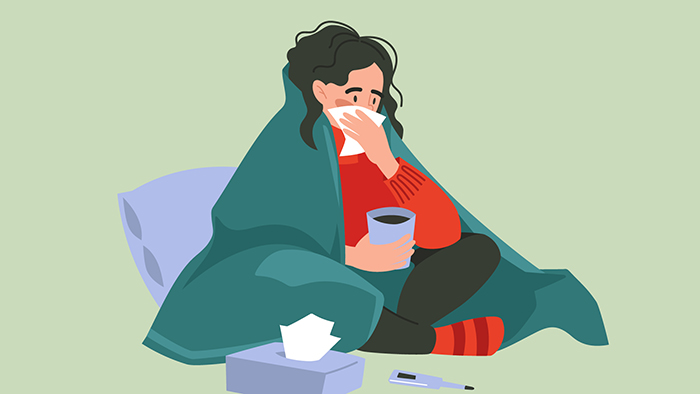Have a Plan for COVID, Flu & RSV Season
Influenza (flu), COVID-19 and respiratory syncytial virus (RSV) are contagious respiratory illnesses that are expected to spread this fall and winter. These illnesses are caused by different viruses that impact the human respiratory system. The viruses that cause the flu, COVID and RSV — as well as the common cold — can infect anyone, but they pose a higher risk of severe illness for older people, those with underlying health conditions and young children. Make immunity a priority, and click here to learn more about boosting your immune system.
Respiratory illnesses like COVID-19, flu and RSV can spread from person to person. To limit the spread, follow these steps to protect yourself and others.
- Know policies and follow procedures.
- Consult NOVA’s Contagious Diseases Policy #111 and Procedure #111P for protocols and steps to ensure your safety and that of our communities. Please review the guidance before you feel sick so you know what to do if you have symptoms, test positive or come into close contact with someone who is ill.
- Learn about immunization options. Immunizations are available for all three major fall and winter respiratory diseases — flu, COVID-19 and RSV. Consult with your medical professional and schedule necessary appointments to ensure you are ready for the season.
- The Centers for Disease Control and Prevention recommends that all people ages 6 months and older stay up-to-date on COVID-19 vaccines and receive a seasonal flu vaccine. If you are age 60 or older, talk to your healthcare provider to see if RSV vaccination is right for you.
- Flu and COVID-19. If you want more city-/county-specific information or have limited or no health insurance, consider contacting your local health department to inquire about available flu and COVID-19 vaccination clinics.
- Flu. Benefits-eligible NOVA employees, click this link for information about your state employee health benefits related to the 2023–24 flu season.
- Seek guidance on testing. Because symptoms can feel similar for different respiratory illnesses, your doctor may ask you to get tested for COVID, RSV or the flu. Tests, some of which can be administered at home, can help you determine your next steps to feeling better and preventing more infection.
- Every U.S. household can again place an order to have four free COVID-19 rapid tests delivered directly to their home.
- Secure effective treatment. In the U.S., medical advancements have created a capacity for more widely available, effective treatments. Seek treatment early, as doing so can reduce the likelihood of severe illness, hospitalization and death.
In brief, be proactive and have a plan:
- Consult with your medical professional and schedule necessary appointments to ensure you are ready for the season.
- Please review the guidance before you feel sick so you know what to do.
- Stay home when sick, reduce contact or practice precautionary measures when around others who are sick.
- Other tools like masking, physical distancing, washing hands and improving airflow can provide an additional layer of protection.
- Don’t delay treatment and other actions that can protect family, friends and coworkers.

Submitted by:
Dahlia Henry-Tett, Chief Wellness Officer (CWO), employeewellbeing@nvcc.edu
